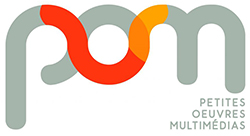
Vous êtes un parent?
Votre enfant n’est pas rentré à la maison ou dans le milieu où il vit. Si c’est le cas, vous vous demandez peut-être quoi faire… Nous pouvons répondre à certaines de vos questions.
Vous êtes un intervenant?
Selon les lois du Québec, la sécurité ou le développement d’un jeune peut être compromis s’il quitte son milieu de vie sans autorisation. Nous pouvons nous outiller pour faire face à ces situations.


Contenus multimédias
Dans un contexte où l’information nous parvient de partout, il est parfois difficile de s’y retrouver. Les contenus multimédias abordent la fugue pour mieux la connaître et la comprendre. Ils offrent une perspective différente pour affronter les inquiétudes et avoir des réponses éclairantes.
Quelques-uns de nos partenaires
jeunesenfugue.ca n’existerait pas sans l’engagement de plusieurs partenaires communautaires et institutionnels.







